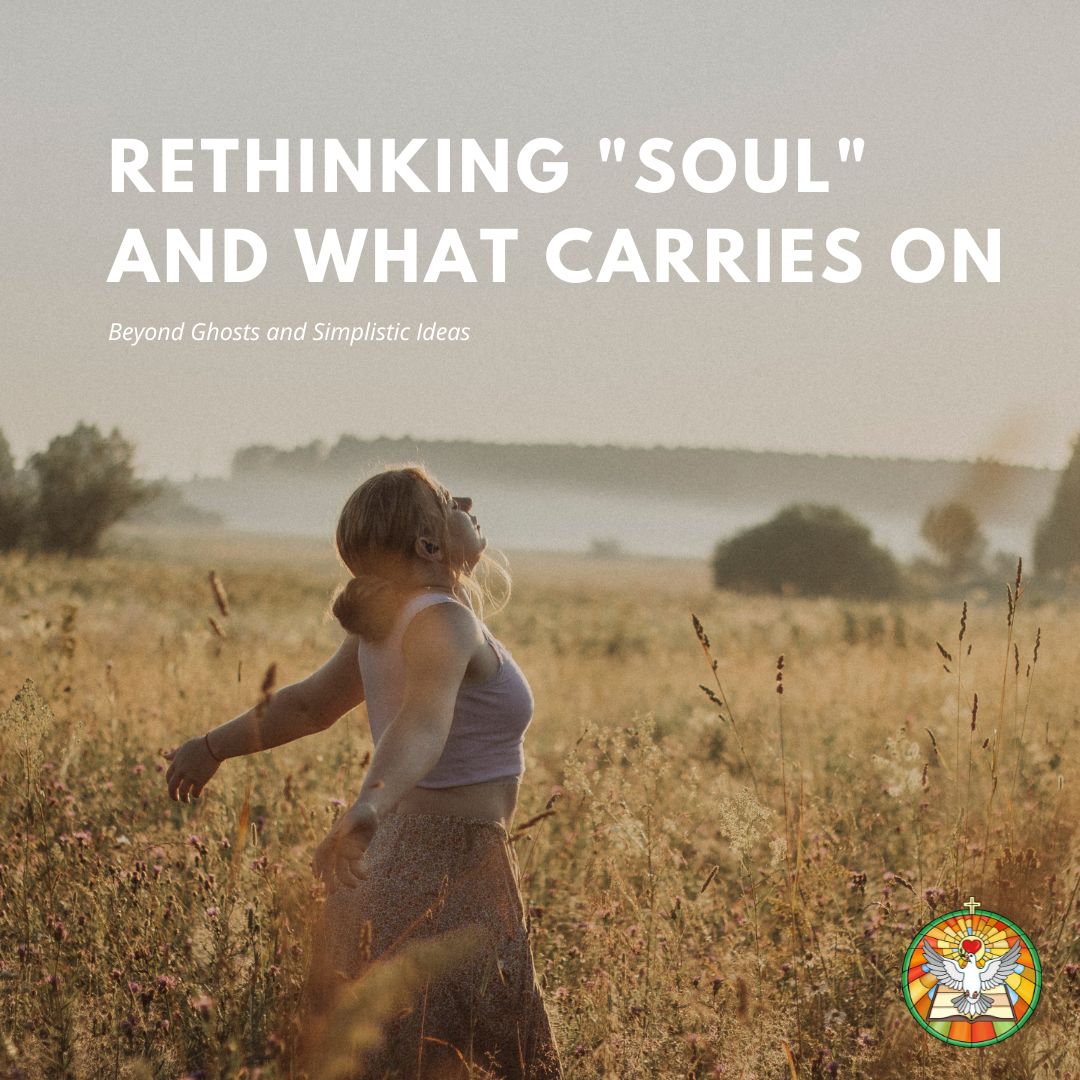
When we think about what happens after life, or even about what makes us "us" throughout our lives, many common ideas come to mind. Often, people imagine a distinct, unchanging "soul" that lives inside the body, and after death, this soul might float off, perhaps wait for a new body, or exist in some ethereal realm. These are age-old folk beliefs found in many cultures.
However, many deep thinkers and wisdom traditions, when you look closely, actually challenge these oversimplified notions. This article explores some of these reflective questions, not to replace any particular faith's understanding of the soul or afterlife (like the Christian hope of resurrection and eternal life), but to invite deeper thought beyond common, sometimes superficial, assumptions. The goal is to see how grappling with these questions can enrich our understanding of ourselves and what truly endures.
The Ever-Changing "Me": A Puzzle of Identity
One of the first things we notice when we reflect is that both our bodies and our minds are in constant flux. Our physical selves change from moment to moment, year to year. Similarly, our thoughts, feelings, and perceptions are a continuous stream – new ones arise, old ones fade, some get stored in memory. If we are always changing, how do we still feel like the "same" person over time?
Some traditions suggest that what we call our "self" is more like a dynamic process than a fixed, static thing. This constant flow of experience – physical sensations, feelings, thoughts, perceptions, and our underlying awareness – is what constitutes our lived reality. If the "self" is always changing, it challenges the idea of it being a single, unchanging entity that remains identical through time, like a marble statue.
But then, how do we explain our persistent sense of identity? If there isn't a single, unchanging "thing" that is "me," why do I feel like the same "I" who existed yesterday or ten years ago?
Consider an analogy: Imagine an old wooden chair. Over years, it gets a new coat of paint, a leg is repaired, the wood ages. It has changed significantly. Yet, we still recognize it as "the same chair." Is this because there's an unchanging "soul of the chair" inside it? Probably not. Our recognition of its identity comes from a continuity of form, function, and memory associated with it, even amidst change.
Some ancient thinkers used the image of a flame on a lamp. Is the flame at 7 PM the exact same flame as at 10 PM? The wax and wick have been consumed and changed; the flame itself is a process of combustion, constantly renewing. It's not precisely the same flame, yet it's not entirely different either – it's a continuous process from a single lamp. They suggested our sense of self might be similar: a continuous process, a flowing stream, where each moment is connected to the last, creating an appearance of a single, unchanging entity, even though the components are always shifting. This "illusion of a continuous, unchanging self" (as these traditions might call it) is what gives us our strong feeling of being a stable "me."
This perspective doesn't necessarily deny a deeper spiritual essence (which in Christianity is the soul, created by God and distinct from a mere psychological process), but it does challenge us to think about how that essence relates to our ever-changing psychological experience of selfhood.
If Not a Simple "Ghost," What Carries Forward?
This brings us to the question of what "continues" if we move beyond simplistic ideas of a ghost-like soul. If we don't imagine a little "me" just hopping from one state to another, how can we think about continuity or the consequences of a life lived?
Many wisdom traditions, including Christian thought in its own way, emphasize that our actions, thoughts, intentions, and desires have profound and lasting effects. They create a kind of "momentum" or "energy." This isn't necessarily about a soul transmigrating into a new body on earth, which is a specific belief in some Eastern religions and different from Christian teaching. Rather, it can be understood as the shaping of our character, the legacy we build, and the impact our lives have on the world and on others – an impact that certainly "carries forward."
Imagine a long conflict, like the "Hundred Years' War" mentioned in some historical reflections. It wasn't one single battle lasting a century but many interconnected engagements, fought by different people in different places. What connected them into "one" war? It was an underlying current of unresolved issues, intentions, and enmities that kept fueling the conflict. As long as that "fuel" remained, the "fire" of conflict continued in new forms.
In a more personal and positive sense, the "sum total" of our choices, our love, our learned wisdom, our compassion – these all contribute to a spiritual "force" or "character" that defines who we are and how we influence eternity. Our lives create ripples. The love we share, the good we do, the wisdom we embody – these things have an enduring reality and effect. This isn't about a soul being "recycled," but about the spiritual reality and lasting significance of a life lived.
Some Eastern philosophies speak of a deep "storehouse" of consciousness where all our experiences and mental imprints reside, shaping future tendencies. While the specific mechanics of this are unique to those traditions and differ from Christian theology of the soul and God's judgment, the underlying psychological insight is that our inner life – our thoughts, intentions, and deepest desires – is profoundly formative and has lasting consequences. It's not just our outward actions, but the "heart" from which they spring, that shapes our spiritual trajectory.
Finding Deeper Meaning Beyond Simple Notions
Grappling with these questions about self, continuity, and what truly endures can be a profound part of anyone's spiritual journey. The purpose of exploring these different ways of thinking, especially those from outside one's own primary faith, is not to adopt them wholesale or to create confusion. Rather, it's to:
- Challenge our own simplistic assumptions or folk beliefs that may not align with the deeper teachings of our own tradition.
- Appreciate the different ways humanity has sought to understand these profound mysteries.
- Deepen our reflection on what our own faith teaches about the nature of the soul, the significance of this life, and the hope for what lies beyond.
For Christians, understanding the soul as created by God, unique, and destined for eternal life through Christ, provides a firm anchor. Reflecting on the psychological dynamics of change, identity, and the continuity of influence can enrich this understanding, helping us to live more consciously and purposefully in the light of that ultimate hope.




